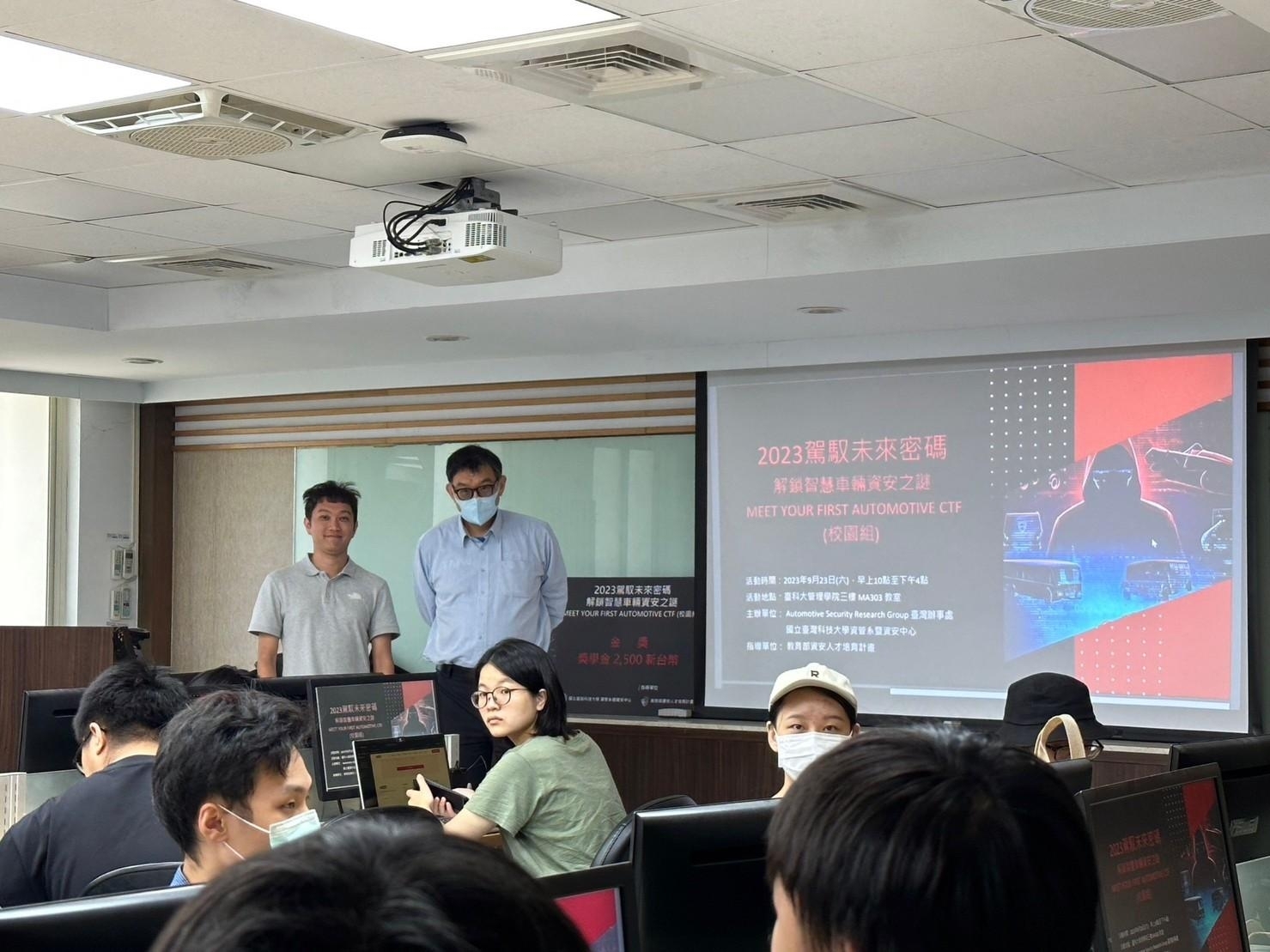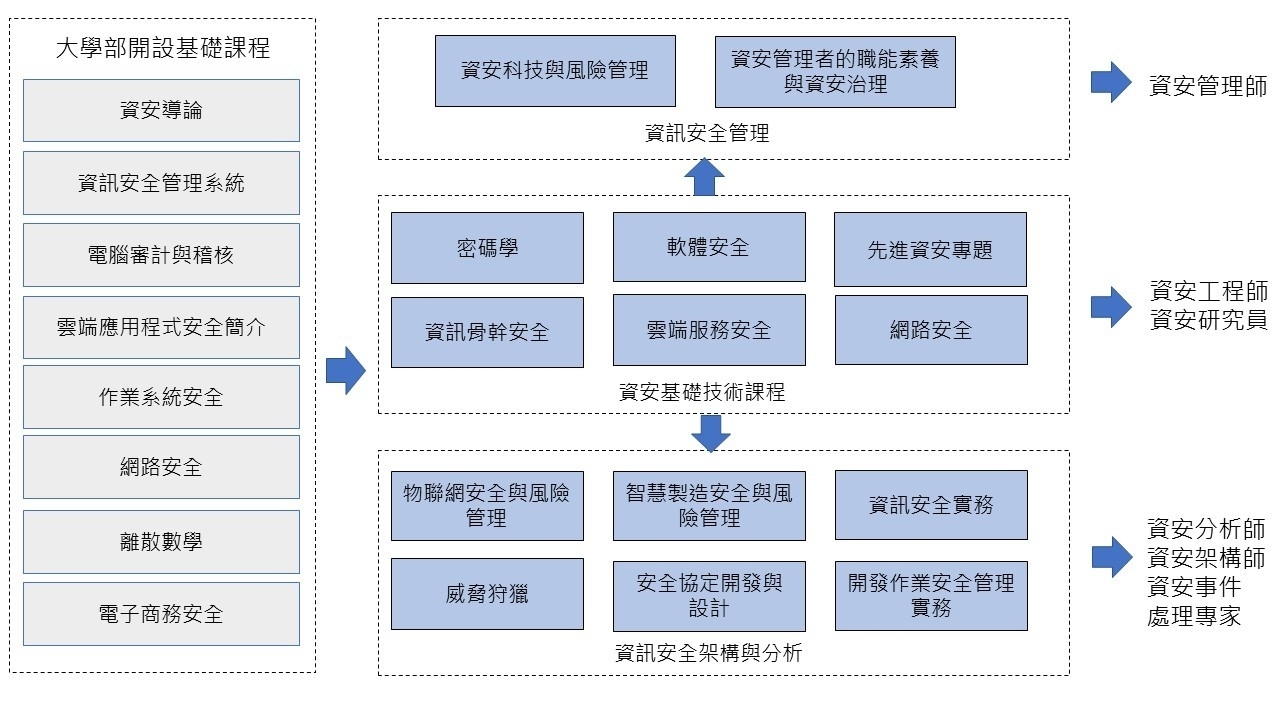Taiwan Tech establishes a Master's program in cybersecurity, and collaborates across industries to cultivate talents in cybersecurity.
In response to the urgent demand for cybersecurity talent, Taiwan Tech has added a "Master's Program in Information Security Technology and Management" in the academic year 112. Taking into account the various positions in the cybersecurity industry, the program is developed in collaboration with the industry, establishing a cybersecurity talent cultivation system guided by industry needs. Taiwan Tech is also one of the nine schools or research centers nationwide that has received funding from the National Science Council for the "Taiwan Academic Cybersecurity Center (TACC)" project. In addition to aiming to become internationally top-notch in cybersecurity research, the university also seeks to strengthen practical skills through the linkage of industry, government, and academia resources, as well as the sharing of experiences from domestic and international experts and scholars, nurturing talents for Taiwan's cybersecurity industry.
The director of the Department of Information Management and the director of the Research and Teaching Center for Cybersecurity at Taiwan Tech, Director Shih-Chao Cha, mentioned that the university has a long-term close cooperation with the industry to jointly cultivate cybersecurity talents. For example, the university collaborates with Palo Alto Networks, a leading global network security company, to offer practical courses in information security defense technology. It also collaborates with VMWare, a global leader in virtualization technology, to offer courses. Taiwan Tech has signed industry-academic cooperation agreements with companies such as IYUNO Digital Technology and Check Point, an Israeli cybersecurity company.
In the future, Taiwan Tech plans to expand and deepen collaboration across different domains. For instance, with the development of smart and autonomous vehicles, automotive cybersecurity has become an important issue. The university is currently collaborating with the Taipei branch of the Automotive Security Research Group (ASRG) to develop security testing technology for in-vehicle components. In September, Taiwan Tech organized a vehicle cybersecurity capture the flag competition, attracting 58 participants from domestic colleges and high schools. The university is also in the process of establishing standardized testing laboratories to promote testing standards for IoT devices and, ultimately, vehicle security.

Taiwan Tech's Department of Information Management, in collaboration with the Automotive Security Research Group (ASRG), organized the "Meet Your First Automotive CTF" (Capture the flag) competition. A total of 58 students from domestic universities and high schools participated in the event. In the accompanying image, Professor Shih-Chao Cha is featured on the right.
Professor Cha Shih-Chao highlighted the five primary roles within the field of cybersecurity, encompassing Information Security Auditor, Information Security Manager, Information Security Engineer, Information Security Analyst, and Information Security Architect. Consequently, the "Master's Program in Information Security Technology and Management" tailors its curriculum to address these key roles, establishing simulated environments for hands-on training. This approach enables students to gain practical experience in event analysis and cybersecurity architecture.
The distinctive feature of the program's curriculum lies in its emphasis on cultivating "Information Security Architects" who play a pivotal role in assisting enterprises in constructing robust information security frameworks. The curriculum not only explores the development of secure programs but also integrates techniques such as DevSecOps during system planning, and employing "threat hunting" methodologies aims to ensure the security of systems post-deployment. Additionally, the program addresses the pressing needs of industries heavily reliant on cybersecurity by offering courses such as "Smart Manufacturing Security" and "IoT Component Security and Testing." These courses equip students with a comprehensive understanding of critical cybersecurity issues in these industries.

The learning roadmap for Taiwan Tech's "Master's Program in Information Security Technology and Management.
For undergraduate students aspiring to enroll in the "Master's Program in Information Security Technology and Management," Director Shih-Chao Cha recommends first undertaking foundational courses during their undergraduate studies. This includes the acquisition of essential knowledge in system principles. During the master's program phase, students can then delve into advanced research and explore applications in the industry. For instance, to comprehend the causes and responses to cybersecurity incidents, it is crucial to have a grasp of the operational mechanisms of various systems. Upon entering the "Master's Program in Information Security Technology and Management," if students encounter challenges in pursuing their specific areas of interest, the program provides a structured learning roadmap. This roadmap serves as a guide for students to proactively acquire knowledge, facilitating a smoother transition into the program.
